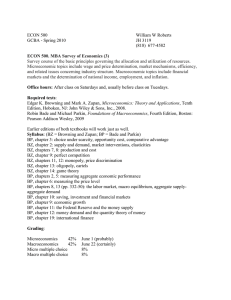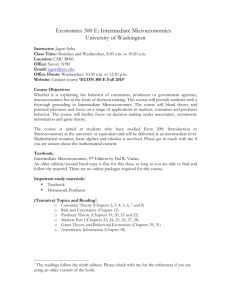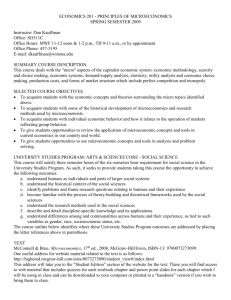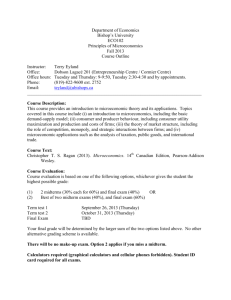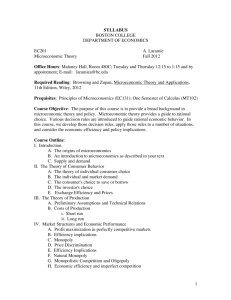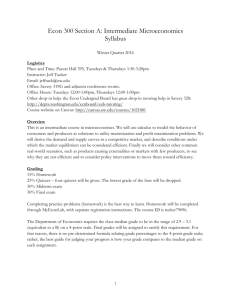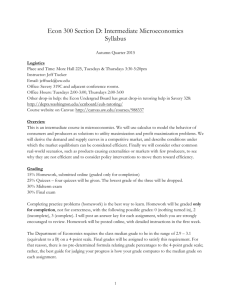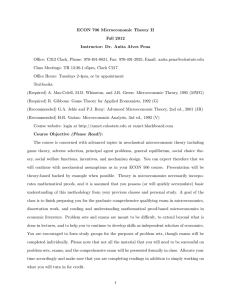Syllabus
advertisement
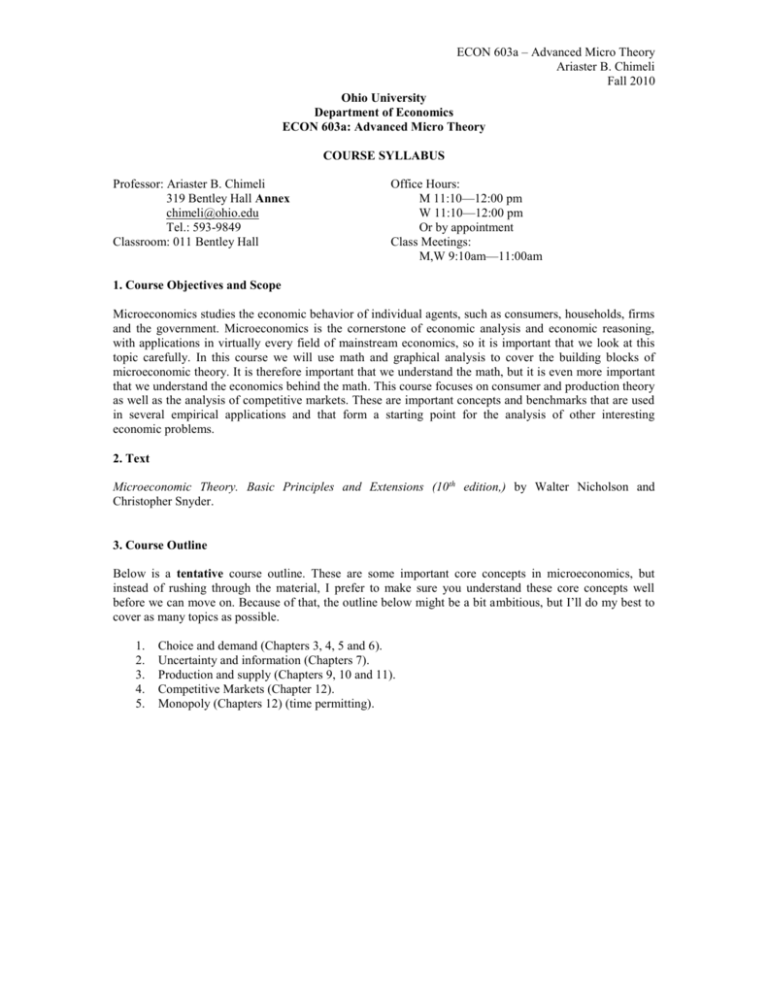
ECON 603a – Advanced Micro Theory Ariaster B. Chimeli Fall 2010 Ohio University Department of Economics ECON 603a: Advanced Micro Theory COURSE SYLLABUS Professor: Ariaster B. Chimeli 319 Bentley Hall Annex chimeli@ohio.edu Tel.: 593-9849 Classroom: 011 Bentley Hall Office Hours: M 11:10—12:00 pm W 11:10—12:00 pm Or by appointment Class Meetings: M,W 9:10am—11:00am 1. Course Objectives and Scope Microeconomics studies the economic behavior of individual agents, such as consumers, households, firms and the government. Microeconomics is the cornerstone of economic analysis and economic reasoning, with applications in virtually every field of mainstream economics, so it is important that we look at this topic carefully. In this course we will use math and graphical analysis to cover the building blocks of microeconomic theory. It is therefore important that we understand the math, but it is even more important that we understand the economics behind the math. This course focuses on consumer and production theory as well as the analysis of competitive markets. These are important concepts and benchmarks that are used in several empirical applications and that form a starting point for the analysis of other interesting economic problems. 2. Text Microeconomic Theory. Basic Principles and Extensions (10 th edition,) by Walter Nicholson and Christopher Snyder. 3. Course Outline Below is a tentative course outline. These are some important core concepts in microeconomics, but instead of rushing through the material, I prefer to make sure you understand these core concepts well before we can move on. Because of that, the outline below might be a bit ambitious, but I’ll do my best to cover as many topics as possible. 1. 2. 3. 4. 5. Choice and demand (Chapters 3, 4, 5 and 6). Uncertainty and information (Chapters 7). Production and supply (Chapters 9, 10 and 11). Competitive Markets (Chapter 12). Monopoly (Chapters 12) (time permitting). ECON 603a – Advanced Micro Theory Ariaster B. Chimeli Fall 2010 4. Grading The course grade will be based on 3 equally weighted exams (30% each) and frequent homeworks (10%). The approximate dates of the exams are listed below: Exam 1: chapters 3, 4 and 5 – week 5. Exam 2: chapters 6 and 7 – week 8. Exam 3: chapters 9, 10, 11, and 12 – final exam (Wednesday, November 17 at 8:00 am). Homeworks are very important to your success in this course. 5. Academic Integrity Cheating is a serious problem and is not tolerated at Ohio University or in this class. Penalties for cheating range from an F on the test to expulsion from the university. 6. Intended Learning Outcomes Microeconomics is perhaps the cornerstone of economic thinking and the goal of this course is to familiarize you with economic thinking and basic analysis of markets. I expect the students to learn and understand this type of thinking, which goes beyond topics that are often perceived as standard economic topics and overlap with several issues in the social and behavioral sciences, ranging from individual decision making to macro policy making. Disclaimer: Claiming that this goal is understood at the end of the course is not sufficient for successful completion of the course. Successful completion of the course will be based on “hard evidence” of understanding stemming from performance on the exams and homeworks.
